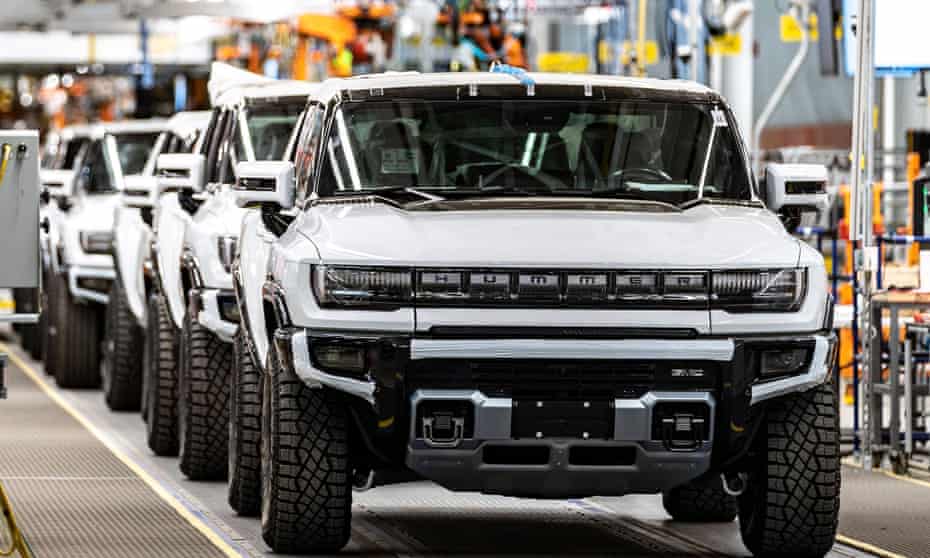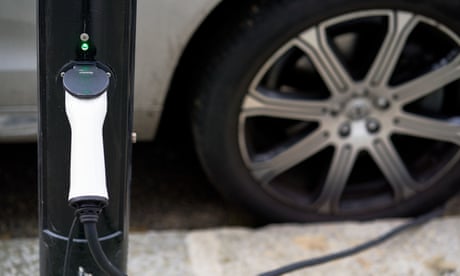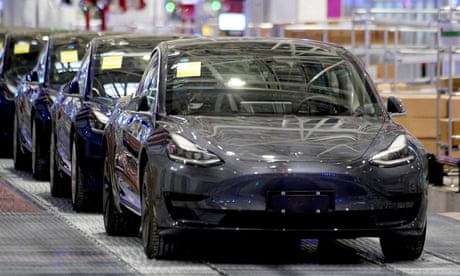Extract from The Guardian
Australia has ‘once in a lifetime opportunity’ to carve out spot in global automotive supply chain, new report suggests.

Last modified on Tue 8 Feb 2022 03.33 AEDT
Australia could resurrect its car industry in an “environmentally and socially transformative” way by drawing on its rich mineral resources to make electric vehicles, according to a new report.
The plan for a new electric vehicle manufacturing sector is laid out in a report titled Rebuilding Vehicle Manufacturing in Australia, from the Australia Institute’s Carmichael Centre.
The report says with 34,258 people still working in car manufacturing making components for the global supply chain and sections of old car factories still intact, Australia has a strong base from which to restart the industry.
Even if Australia is unable to revive the industry to the point where it can make an electric car from scratch, there would still be much to gain from expanding into a portion of the global automotive supply chain such as batteries, the report says.

Australia is already expanding its production of lithium and other critical minerals needed to build batteries and other electronic infrastructure that will underpin the global zero emissions transition.
In 2017 the extraction of spodumene – crushed raw lithium – alone was worth $1.1bn, but processing it into precursor materials and then making batteries could create an industry worth $22.1bn.
Lead author of the report, Dr Mark Dean, said a new EV industry may not be a “panacea” to Australia’s lack of ambition on climate change, but building a new, hi-tech industry would make the transition easier by spreading the benefits.
“For decades the auto industry was the glue that held communities together. It provided security and good standards of living,” Dean said.
“What you’ll be doing is saying to all these different people in all these different communities that by creating an electric vehicle industry-driven future, you will benefit.
“We need people to mine these commodities, process them, and we need them to be transported so they can be manufactured – everyone along the way benefits.”
The report recommends a commission be set up with representatives from government, business and unions to map out how a new industry can be created.
It also recommends any new industry be powered by renewable energy, clear incentives to encourage take up, including fuel efficiency standards, and efforts made to attract major car companies.
AMWU national president, Andrew Dettmer, said making electric cars offered a “once in a generation opportunity” that would create a “virtuous cycle” of growing employment and innovation while lowering emissions.
“As far as we’re concerned this is a great opportunity to rebuild from the bottom up a new vehicle industry in Australia,” Dettmer said. “But we need to see government take it up and, for once, be bold.”
Dettmer said electric cars had fewer parts than petrol vehicles, but the complexity of guidance systems, suspension systems, batteries and collision avoidance and other systems required much more work.
Behyad Jafari from the Electric Vehicle Council said Australia “absolutely has the opportunity to do large-scale industry manufacturing” but warned it wasn’t going to “fall into our laps”.

With waiting lists growing and EV sales having tripled over the past two years, the biggest challenge facing the industry was supply.
“We sell about 1m vehicles every year and we have 19m cars on the road to work our way through,” Jafari said.
“We know that when someone buys a car, that will stay on the road for 15 years. If we plan to reach net zero emissions by next decade we need to be done with petrol and diesel.
“Building electric vehicles here means we could ensure we’ll have a supply of electric vehicles available for us to buy, which would be a really big boost to decarbonising our entire market.”
Bill Gillespie, president of SEA Electric in the Asia Pacific, an Australian company that makes and converts trucks and buses to electric, said when other governments worldwide were competing to attract new industry Australia lacked clear policy.
“If you were in the US you wouldn’t look to Australia and say let’s establish a zero emission truck business, because the ground is not very fertile at the moment,” Gillespie said.
“Like the world’s longest road trip, Australia will transition but it will be slow and companies will be left asking, are we there yet?”
No comments:
Post a Comment